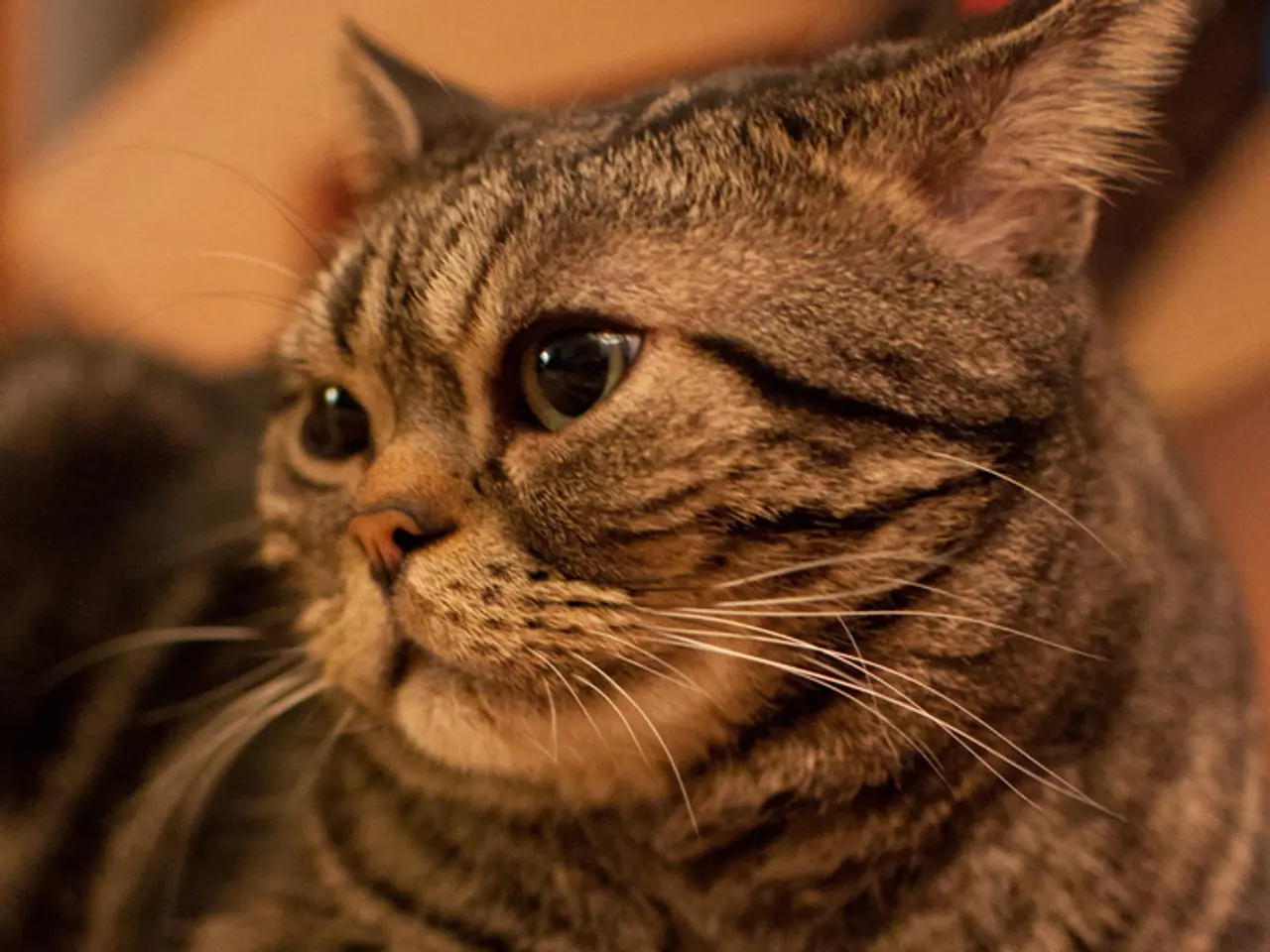Article Title: Exploring Feline Hyperventilation - An Insight by Natalie Marks, DVM, Reviewed by Catherine Barnette, DVM
Cats, unlike their canine counterparts, don't typically pant after play or a hot day. However, when they do pant, it's essential to pay attention, as it might signal an underlying health issue. Here's what you need to know about cat panting.
Heartworm disease, though more commonly associated with dogs, can also affect cats. Symptoms include coughing, panting, and labored breathing. Unfortunately, there is no definitive cure for heartworm disease in cats. Cats can also develop respiratory infections within the nasal passages and lungs, causing similar symptoms. Treatment includes oxygen therapy, antibiotics, and humidifiers or steam therapy.
If a cat is panting spontaneously, doesn't resolve quickly, and is accompanied by coughing, difficulty breathing, and/or lethargy, it should be considered an emergency. Abnormal panting is often associated with various medical conditions such as respiratory disease, asthma, congestive heart failure, heartworm disease, anemia, trauma, neurological disease, distended abdomen, severe pain, and others.
Feline asthma is a condition in which a cat's body creates an allergic reaction to inhaled particles from the environment, causing constriction and narrowing of the airways in the lungs. Certain cat breeds, such as Himalayans, Persians, Maine Coons, and long-haired breeds, are more susceptible to panting due to their respiratory anatomy or hair coat.
Anxiety in cats can cause normal feline panting but can become a source of abnormal panting if ongoing. Signs of stress associated with panting include overgrooming, inappropriate urination, hissing, hiding, and changes in appetite. Other causes of abnormal panting in cats include trauma, severe pain, disease in the brain or spinal cord, a distended abdomen, some toxicities, and various medical conditions.
In case of emergency, keep the cat in a secured, travel-safe carrier, maintain a cool car temperature, play soft music to help relax the cat, and call the veterinarian ahead of time to alert them of your arrival. Treatment for congestive heart failure in emergencies includes oxygen therapy, diuretics, medication to slow down the heart rate, aspirin to prevent blood clots, and other life-saving strategies.
Respiratory distress is one of the most common reasons for emergency visits in cats, often due to an underlying disease. Cats with congestive heart failure, especially those with hypertrophic cardiomyopathy (HCM), can have difficulty breathing, panting, coughing, decreased appetite, weight loss, and in advanced cases, risk of blood clots.
Normal panting in cats usually occurs after exertion, excitement, or to cool down in warm weather and should resolve with rest, cooling, and water. However, if panting continues nonstop beyond a few minutes or is severe, this is unusual and should be treated as a medical concern.
Observing and acting on accompanying symptoms alongside panting is crucial to determine when veterinary care is needed. If panting occurs after play or heat and stops quickly with rest and hydration, it is likely normal. However, if panting is prolonged, intense, or accompanied by symptoms such as lethargy, breathing difficulty, pale/blue gums, coughing, hiding, loss of appetite, or pain signs, seek veterinary care promptly. Emergency veterinary care is required if your cat shows respiratory distress or signs of heat stroke.
[1] Veterinary Partner [2] PetMD [3] American Association of Feline Practitioners [4] ASPCA [5] Cornell Feline Health Center
- It's important to note that heartworm disease, typically linked with dogs, can also affect cats, presenting symptoms such as coughing, panting, and labored breathing.
- Anxiety in cats can cause normal feline panting, but prolonged or abnormal panting might be a sign of stress, which can be associated with other causes like trauma, severe pain, disease in the brain or spinal cord, or various medical conditions.




